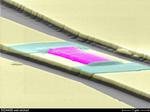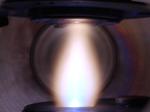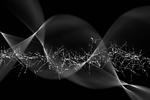Other

“Liquid crystals could soon be produced more efficiently and in a more environmentally friendly way. A new process has been developed by researchers at Martin Luther University Halle-Wittenberg (MLU) in Germany, Bangalore University in India and Cairo University in Egypt …

“Alkynes have many uses in industry. Until now, it was assumed that gold- or platinum-based catalysts were absolutely necessary for certain chemical reactions with alkynes. Chemists at Martin Luther University Halle-Wittenberg (MLU) have now succeeded in carrying out the same …

“One day in the near future dyes in electric motors might indicate when cable insulation is becoming brittle and the motor needs replacing. Scientists at Martin Luther University Halle-Wittenberg (MLU), together with ELANTAS, a division of the specialty chemicals group …

“New storage and information technology requires new higher performance materials. One of these materials is yttrium iron garnet, which has special magnetic properties. Thanks to a new process, it can now be transferred to any material. Developed by physicists at …

“A new method for constructing special solar cells could significantly increase their efficiency. Not only are the cells made up of thin layers, they also consist of specifically arranged nanoblocks. This has been shown in a new study by an …

“The properties of synthesised magnets can be changed and controlled by charge currents as suggested by a study and simulations conducted by physicists at Martin Luther University Halle-Wittenberg (MLU) and Central South University in China. In the journal “Nature Communications …
“A complex process can modify non-magnetic oxide materials in such a way to make them magnetic. The basis for this new phenomenon is controlled layer-by-layer growth of each material. An international research team with researchers from Martin Luther University Halle-Wittenberg …

“Graphene Nanoribbons might soon be much easier to produce. An international research team led by Martin Luther University Halle-Wittenberg (MLU), the University of Tennessee and Oak Ridge National Laboratory in the U.S. has succeeded in producing this versatile material …

“Bose-Einstein condensates are often described as the fifth state of matter: At extremely low temperatures, gas atoms behave like a single particle. The exact properties of these systems are notoriously difficult to study. In the journal “Physical Review Letters”, physicists …

